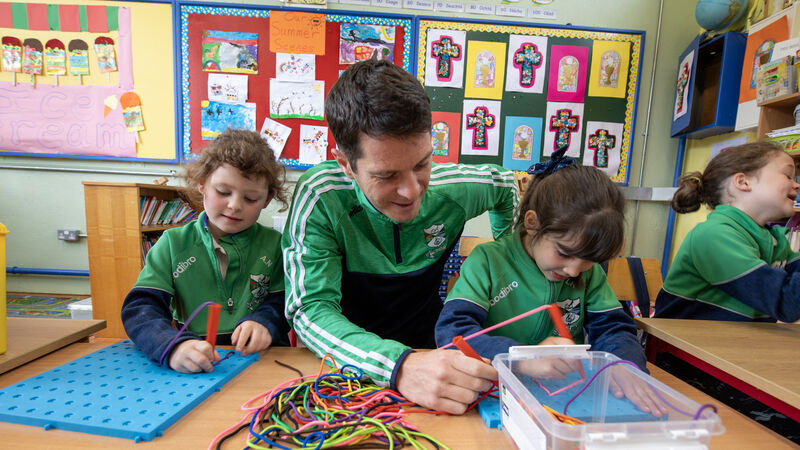Removal of faith from schools is moving at a snail's pace

Teacher Gary Coughlin from Lyreacrompane Community National School in Co Kerry, which will reopen in September under the patronage of Kerry ETB. Picture: Domnick Walsh
Three primary schools, formerly under the patronage of the Catholic Church, are to reopen this September as multi-denominational Community National Schools (CNS).
The schools, as they are currently named, are: Fedamore National School in Limerick; Lyreacrompane Primary School in Kerry; and Kyle National School in Cork.














